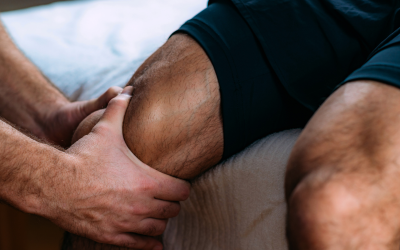Are you experiencing pain in your thigh, buttock or groin area? Does it hurt whether you sit or stand? You might be one of 20 million Americans suffering from Osteoarthritis of the hip! The doctors at Tennessee Orthopaedic Alliance see this common problem every day in our practice.
The Hip joint carries your weight all day long. It’s normal for there to be some “wear and tear” arthritis (osteoarthritis), the most common form of the disease, as you age. The smooth and glistening covering (articular cartilage) on the ends of your bones, which helps your hip joint glide smoothly, thins and stops to function.
Carrying excess weight or having prior hip injuries increases your risk. A family history of arthritis, misshapen hip joints (femoroacetabular impingement) or shallow hip sockets (dysplasia) further increases the risk of Osteoarthritis.
Symptoms
Your first sign may be a bit of discomfort and stiffness in your groin, buttock, or thigh when you wake up in the morning. The pain flares when you are active, climbing stairs, or stand from a sitting position.
When the cartilage wears away completely, bones can grind and cause pain. You may become stiff and lose the ability to move your hip. This pain can then lead to inactivity which can actually worsen the situation.
Treatment
Osteoarthritis is not reversible with current medical technology. However, early nonsurgical treatment can certainly reduce and alleviate the pain while increasing function and slowing progression of the disease.
Nonsurgical Treatment
If you have early stages of osteoarthritis of the hip, the first treatment may be:
- Modify your activities to avoid flare-ups
- Start a physical therapy program to help strengthen the muscles around your hip
- Include regular exercise like swimming, water aerobics or cycling to keep your joint functioning
- Using a cane can help transfer stress to the less affected side
- Losing excess weight is very effective in relieving stress placed on arthritic joints.
- Use non-steroidal anti-inflammatory medications which alleviate the pain and swelling from arthritis
- Injections can also deliver high power anti-inflammatory directly to the affected area
Surgical Treatment
If you have later stages of osteoarthritis, your hip joint hurts when you rest at night, and/or your hip is severely deformed, your doctor may recommend hip replacement surgery (arthroplasty). Total Joint Replacement is considered for patients whose quality of life is being negatively affected by their hip pain.
It is important to get your hip pain diagnosed by a board certified orthopedic specialist. Early diagnosis and treatment can have a very positive impact on the long term effects of this disease.



